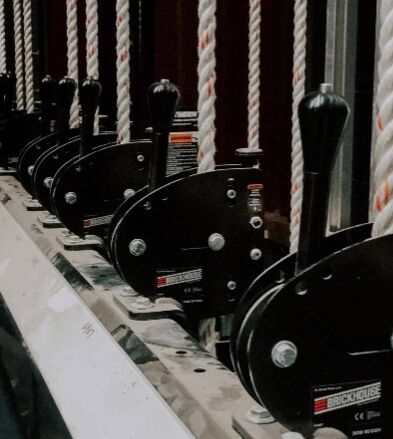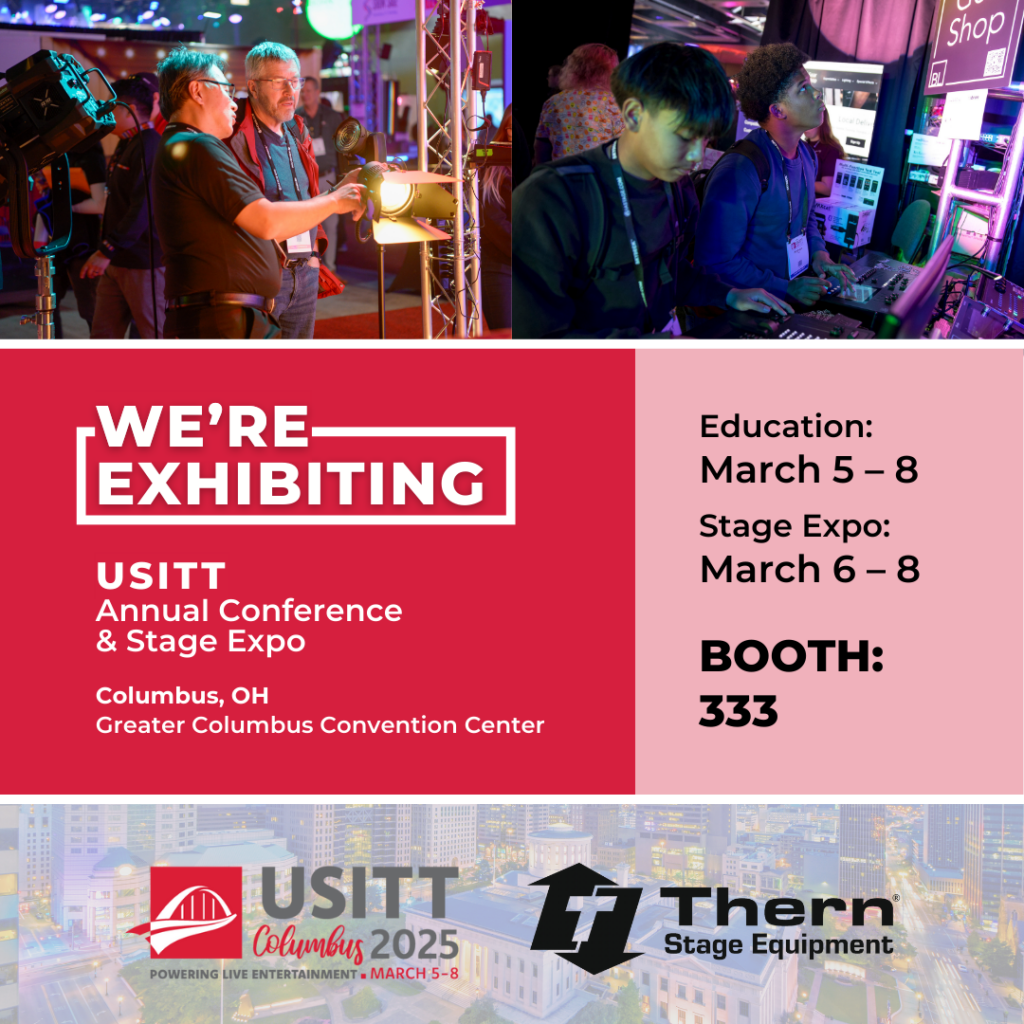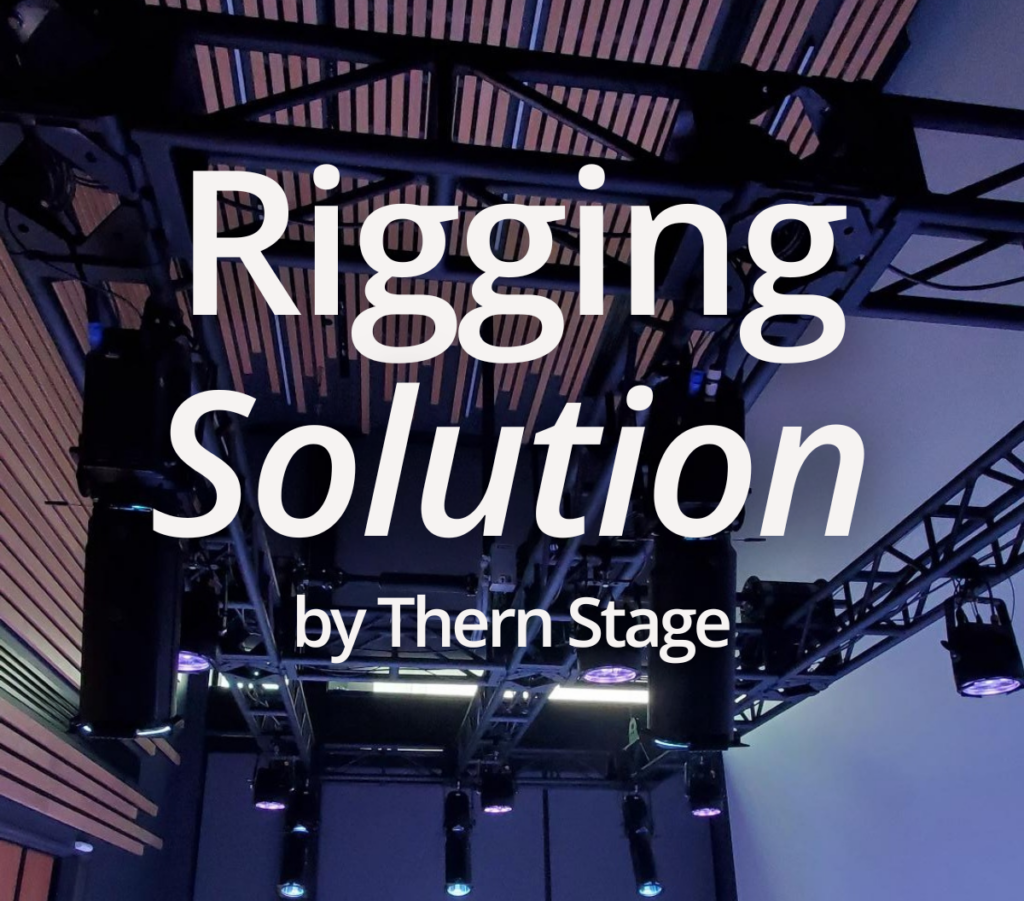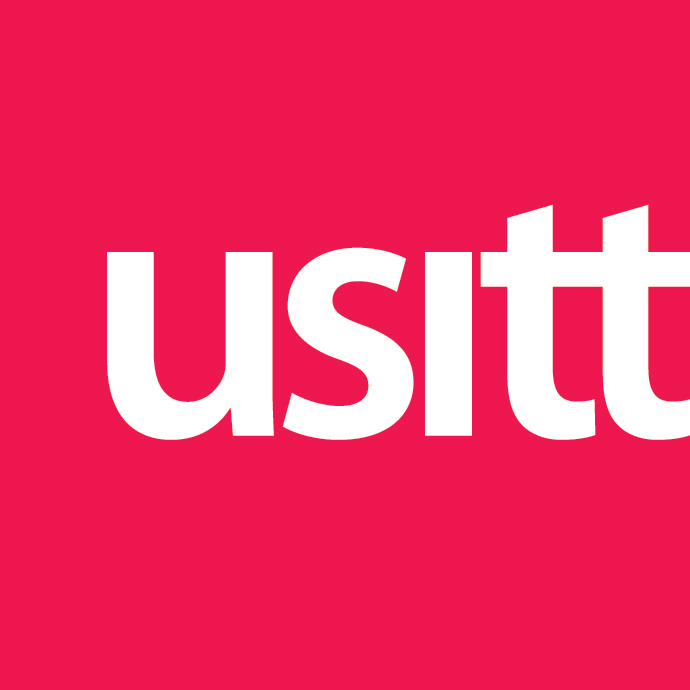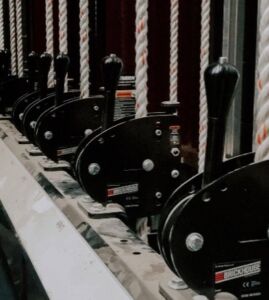
Safety in Theatre Rigging: The Importance of Regular Inspections
Behind every spectacular theatre production is an unsung hero – the rigging system. Your rigging system doesn’t have the glitz and glamour of center stage, but these vital stage rigging components are the backbone that allows scenery, lights, props, and effects to be flown in and out seamlessly.
In this blog post, we’ll explain the significance of safety inspections for theatre rigging equipment and why they should be an integral part of every production’s protocol.
Why Safety Inspections Matter For Theatres
Theatre rigging equipment operates under rigorous conditions, enduring heavy loads and frequent usage. Over time, wear and tear can compromise the integrity of rigging components, posing significant risks to everyone involved in the production. Safety inspections serve as a proactive measure to identify potential hazards before they escalate into accidents.
Compliance with Safety Regulations
Adhering to safety regulations and industry standards is non-negotiable in theatre productions. Regulatory bodies, such as ANSI (American National Standards Institute) and ESTA (Entertainment Services and Technology Association), mandate regular inspections of rigging equipment to ensure compliance with safety protocols such as ANSI E1.47 standard for entertainment rigging system inspections. This guides which components need inspection, how frequently inspections should occur, and whether a Level 1 (periodic) or more in-depth Level 2 inspection is required.
Prevention of Equipment Accidents
Theatre rigging accidents can have catastrophic consequences, ranging from minor injuries to fatalities. As Thern Stage Equipment’s Technical Sales Rep, Austin Utley states, “We are working with very heavy equipment designed to hang over peoples’ heads. If you do not follow the ANSI and ESTA standards, it could result in someone getting seriously hurt.” Therefore, routine safety inspections can preemptively detect faulty equipment, defective components, or improper installations. Addressing these issues promptly minimizes the likelihood of accidents during performances, safeguarding the well-being of everyone involved, including performers, crew members, and audience members.
Prolonging Stage Equipment Lifespan
Regular maintenance and inspections not only enhance safety but also extend the lifespan of rigging equipment. Identifying and rectifying minor issues early on prevents them from escalating into major problems that could necessitate costly repairs or replacements. Investing in proactive maintenance can optimize the longevity and performance of rigging systems, ensuring smooth operations throughout multiple productions.
Best Practices for Theatre Rigging Inspections
To effectively safeguard against potential risks, follow these best practices for rigging inspections:
- Schedule regular inspections by qualified professionals, adhering to industry standards and regulatory requirements. Many of Thern Stage’s dealers provide inspection services, contact us for recommendations.
- Conduct thorough visual examinations of all rigging components, including cables, pulleys, motors, and attachment points.
- Perform load testing to assess the capacity and stability of rigging systems under operational conditions.
- Keep detailed records of inspection findings, repairs, and maintenance activities for documentation and auditing purposes.
- Invest in staff training to ensure that personnel are knowledgeable about safe rigging practices and emergency procedures.
In Conclusion
Don’t let your theatre’s rigging system be the tragedy that writers dramatize. Prioritize scheduling those rigging inspections to keep your cast, crew, and audience safe with every performance. If you need a new rigging system or an individual component, connect with our team, and we’ll be happy to assist you!
